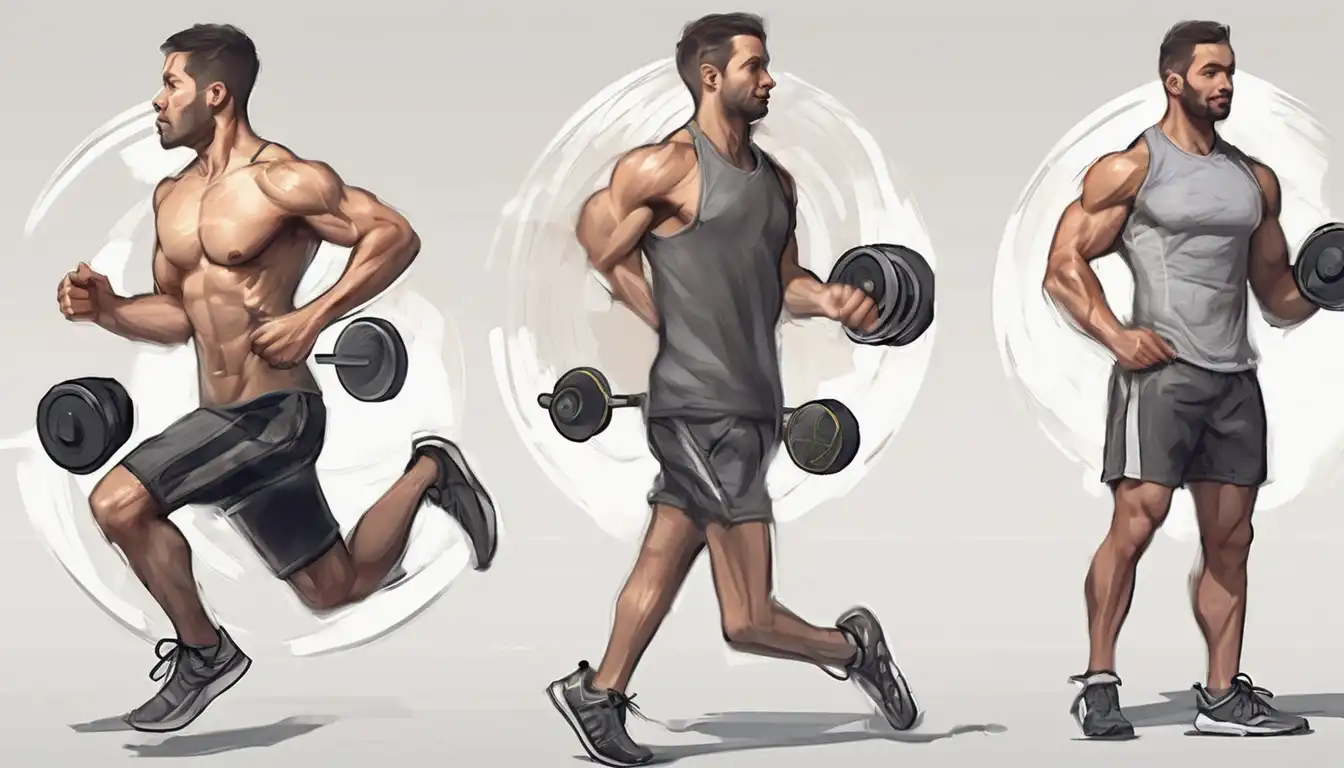Your First Steps to a Healthier Lifestyle
Starting a fitness routine can feel overwhelming, especially if you're new to exercise. Whether you want to lose weight, build strength, or simply improve your overall health, creating a sustainable fitness plan is crucial for long-term success. This comprehensive guide will walk you through everything you need to know about starting your fitness journey with confidence.
Why Start a Fitness Routine?
Regular exercise offers numerous benefits beyond just physical appearance. Consistent physical activity can boost your energy levels, improve mental health, reduce stress, and lower your risk of chronic diseases. Many beginners find that starting a fitness routine helps them sleep better, increases their confidence, and provides a sense of accomplishment.
Assessing Your Current Fitness Level
Before diving into any exercise program, it's important to honestly assess your current fitness level. Consider factors like your endurance, strength, flexibility, and any physical limitations. If you have pre-existing health conditions, consult with a healthcare professional before beginning any new fitness regimen. This initial assessment will help you set realistic goals and avoid potential injuries.
Setting SMART Fitness Goals
Effective goal-setting is the foundation of any successful fitness routine. Use the SMART framework: Specific, Measurable, Achievable, Relevant, and Time-bound. Instead of vague goals like "get fit," aim for specific targets such as "walk 30 minutes daily" or "complete three strength training sessions per week." Remember to start small and gradually increase intensity as you progress.
Choosing the Right Type of Exercise
There are four main types of exercise to incorporate into your routine:
Cardiovascular Exercise
Cardio exercises get your heart pumping and improve cardiovascular health. Beginner-friendly options include brisk walking, cycling, swimming, or using an elliptical machine. Start with 20-30 minutes of moderate-intensity cardio 3-4 times per week.
Strength Training
Building muscle helps boost metabolism and improves overall strength. Beginners can start with bodyweight exercises like squats, push-ups, and planks. As you progress, consider incorporating resistance bands or light weights. Aim for 2-3 strength sessions weekly, focusing on different muscle groups.
Flexibility and Mobility
Flexibility exercises improve your range of motion and reduce injury risk. Incorporate stretching or yoga into your routine, especially after workouts when muscles are warm. Even 10 minutes of stretching daily can make a significant difference.
Balance Exercises
Balance training is often overlooked but crucial, especially as we age. Simple exercises like standing on one leg or heel-to-toe walking can improve stability and prevent falls.
Creating Your Weekly Workout Schedule
A balanced weekly schedule might include:
- Monday: 30-minute brisk walk (cardio)
- Tuesday: Full-body strength training
- Wednesday: Active recovery (light stretching)
- Thursday: 25-minute cycling (cardio)
- Friday: Upper body strength training
- Saturday: Outdoor activity or rest
- Sunday: Yoga or stretching
Remember that consistency is more important than intensity when starting out. It's better to exercise moderately 3-4 times per week than to push too hard and burn out.
Essential Equipment for Beginners
You don't need expensive equipment to start your fitness journey. Basic items include:
- Comfortable athletic shoes
- Moisture-wicking clothing
- Water bottle
- Exercise mat
- Resistance bands (optional)
Many effective workouts require no equipment at all. Bodyweight exercises can be just as effective as gym-based workouts for beginners.
Proper Form and Technique
Learning proper form is crucial for preventing injuries and maximizing results. Consider working with a personal trainer initially or watching reputable online tutorials. Pay attention to your posture during exercises and don't sacrifice form for heavier weights or faster repetitions.
Common Beginner Mistakes to Avoid
Many newcomers make similar mistakes that can hinder progress or lead to injury. Avoid these common pitfalls:
- Starting too aggressively
- Skipping warm-ups and cool-downs
- Comparing yourself to others
- Neglecting proper nutrition
- Not listening to your body
Nutrition and Hydration Basics
Exercise and nutrition go hand in hand. Focus on balanced meals containing lean proteins, complex carbohydrates, healthy fats, and plenty of fruits and vegetables. Stay hydrated by drinking water throughout the day, especially before, during, and after workouts. Proper nutrition fuels your workouts and supports recovery.
Tracking Your Progress
Monitoring your progress helps maintain motivation and allows you to adjust your routine as needed. Consider tracking:
- Workout frequency and duration
- Strength improvements
- Energy levels
- How your clothes fit
- Overall mood and wellbeing
Remember that progress isn't always linear. Some weeks you might feel stronger than others, and that's completely normal.
Staying Motivated
Maintaining motivation can be challenging, especially when results aren't immediate. Try these strategies:
- Find an exercise buddy
- Vary your workouts to prevent boredom
- Set small, achievable milestones
- Reward yourself for consistency
- Focus on how exercise makes you feel
When to Seek Professional Guidance
If you have specific health concerns, injuries, or ambitious fitness goals, consider consulting with fitness professionals. Personal trainers, physical therapists, and nutritionists can provide personalized guidance tailored to your needs and limitations.
Adapting Your Routine Over Time
As you become fitter, your body adapts to your current routine. To continue seeing progress, gradually increase intensity, duration, or try new activities. This concept, known as progressive overload, ensures continuous improvement and prevents plateaus.
Conclusion: Your Fitness Journey Begins Now
Starting a fitness routine is one of the best investments you can make in your health and wellbeing. Remember that every expert was once a beginner, and consistency matters more than perfection. Start slowly, listen to your body, and celebrate small victories along the way. Your fitness journey is unique to you—embrace the process and enjoy becoming a stronger, healthier version of yourself.
Ready to take the next step? Check out our guide on building sustainable healthy habits to complement your new fitness routine. For more beginner-friendly workout ideas, explore our collection of effective home workouts that require minimal equipment.
